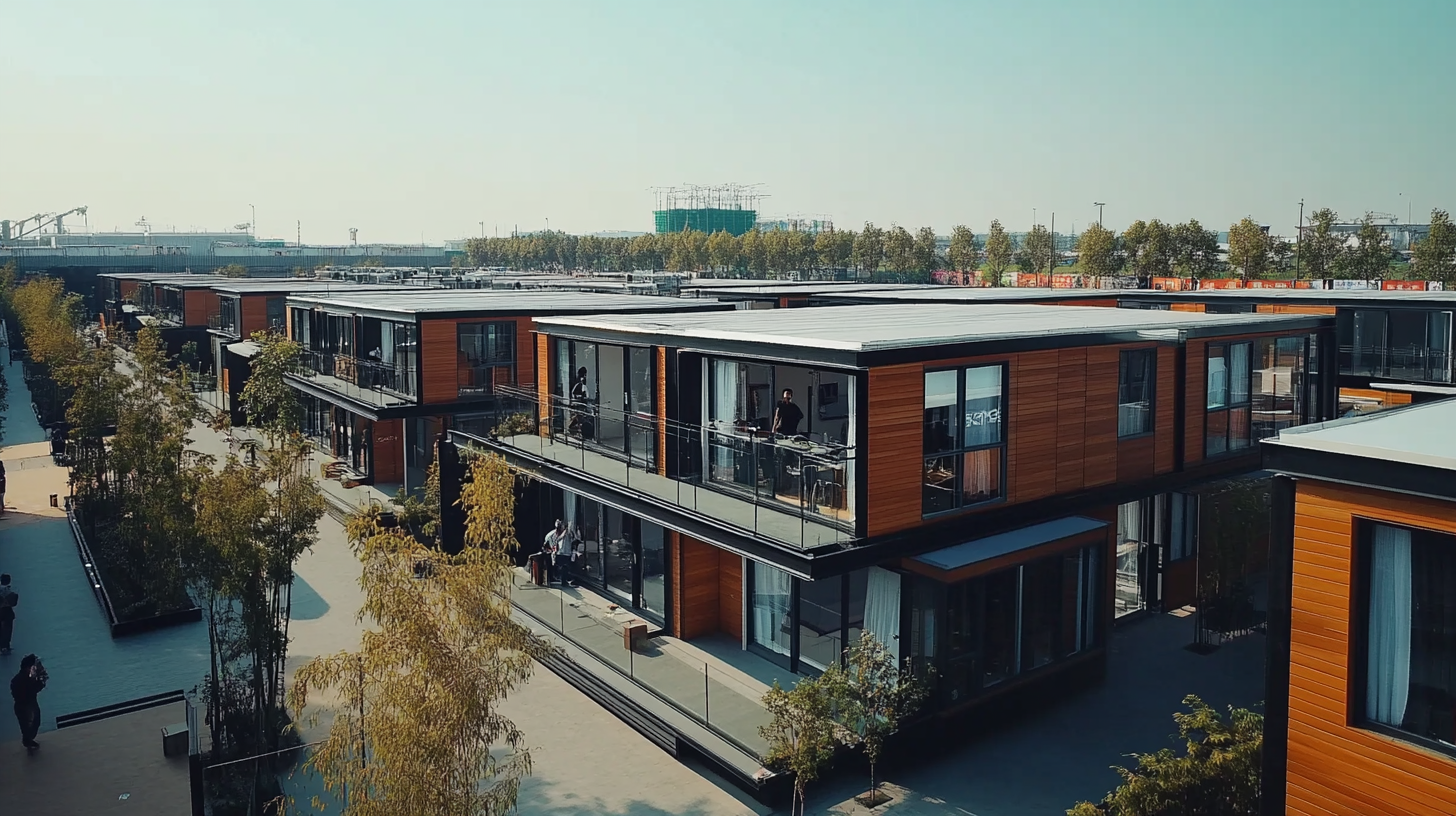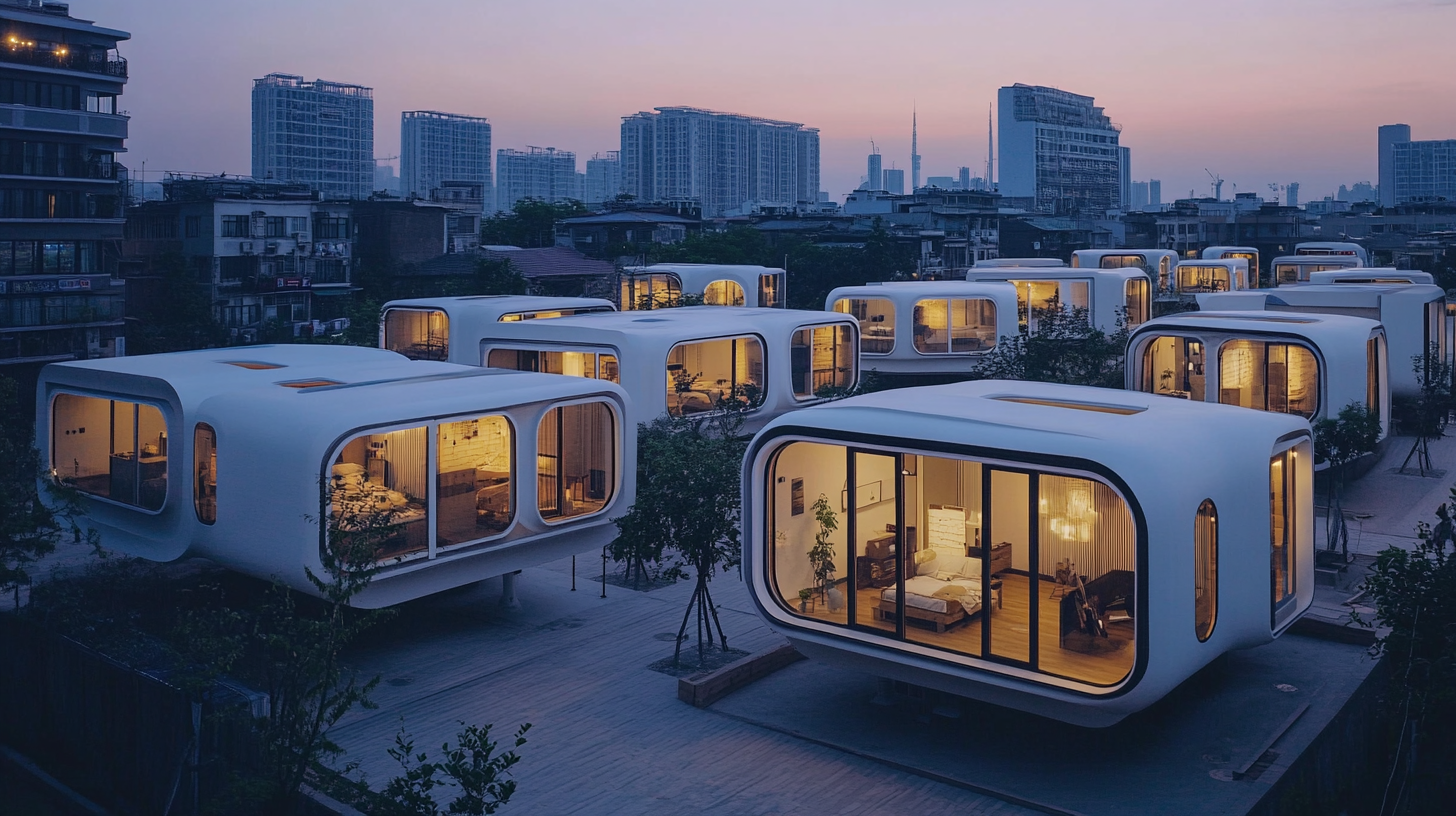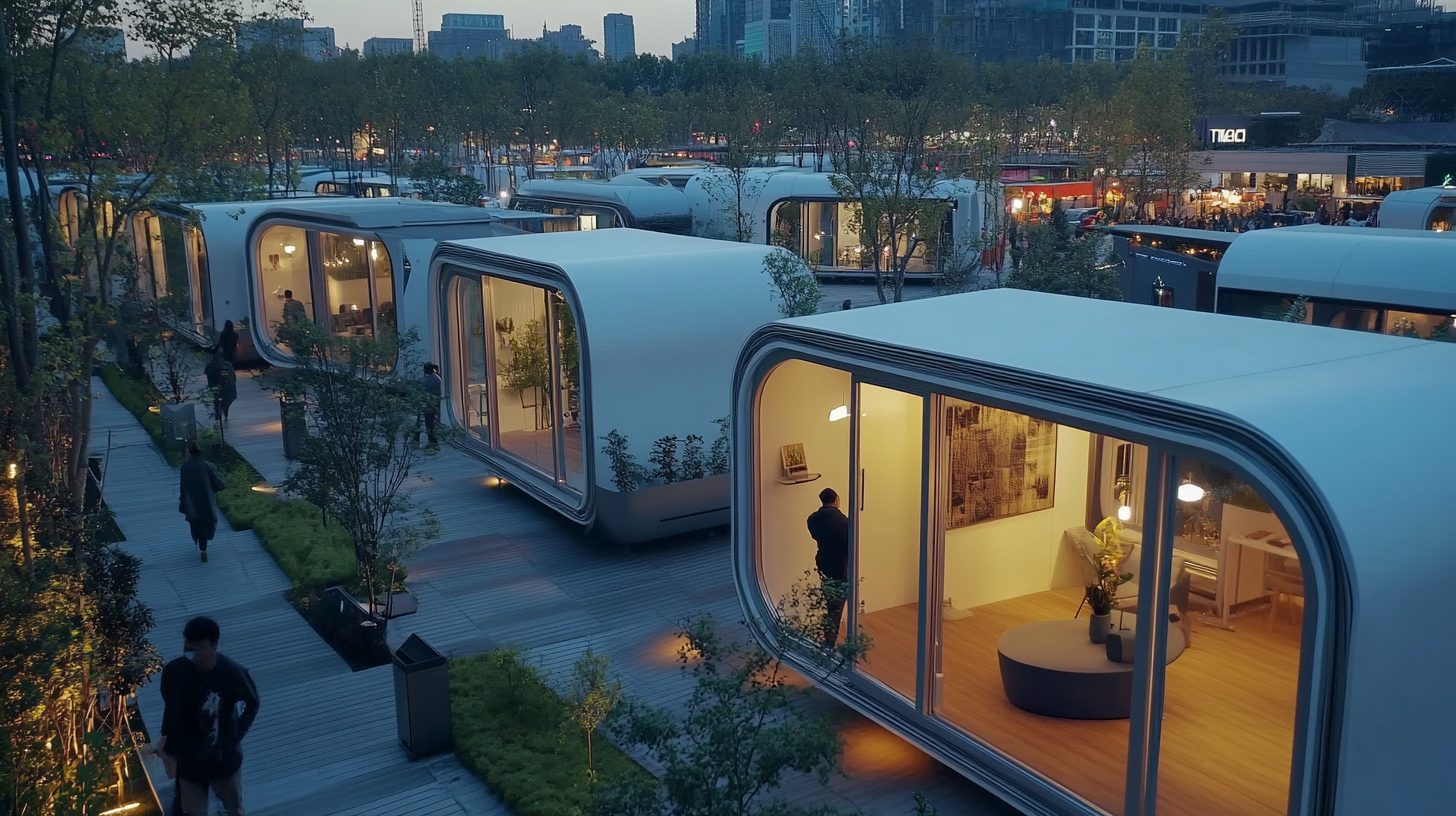The recent surge in popularity of prefab cabin homes has taken center stage at the 137th Canton Fair, held in Guangzhou from April 15 to May 4, 2025. With a record-breaking attendance of 288,938 international buyers from 219 countries and regions, this year's fair highlighted the growing demand for innovative and sustainable housing solutions. As consumers seek affordable and eco-friendly alternatives in the wake of changing lifestyle preferences, prefab cabin homes have emerged as a favored choice for many. This trend was underscored by the impressive onsite export intent transactions, which reached $25.44 billion, marking a 3% increase from the previous year. The continuous growth of the prefab cabin market reflects a significant shift in the construction and real estate sectors, characterized by efficiency and sustainability. As the Canton Fair continues to serve as a pivotal platform for showcasing emerging trends, the spotlight on prefab cabin homes is a testament to their rising significance in today's housing landscape.

The 137th Canton Fair has become a hotspot for innovation, showcasing a remarkable rise in prefab cabin homes that cater to modern living needs. These homes, characterized by their sustainable design and quick assembly, are gaining traction among buyers who seek affordable and efficient housing solutions. The fair highlighted various styles of prefab cabins, from minimalist designs to more luxurious options, appealing to a diverse audience—from eco-conscious consumers to those wanting a vacation retreat.
One notable trend observed at the Canton Fair is the integration of smart technology into prefab cabin homes. Manufacturers are increasingly incorporating features such as smart thermostats, automated lighting systems, and energy-efficient appliances, making these homes not only sustainable but also convenient for the tech-savvy consumer. This fusion of comfort and technology sets the stage for the future of housing, reflecting a shift towards more versatile living spaces that align with contemporary lifestyles and values. As the demand for prefab cabin homes surges, it’s clear that this trend is not just a fleeting moment but a significant movement towards sustainable and innovative residential solutions.
The record-breaking attendance at the 2025 Canton Fair has highlighted the rapidly evolving landscape of smart home technology, particularly with the rising popularity of prefab cabin homes. This surge reflects a growing consumer interest in sustainable, cost-effective living solutions that blend modern design with functionality. According to industry reports, the prefab home market is projected to grow at a CAGR of 7.5% over the next five years, driven by innovations in manufacturing and increasing consumer preferences for environmentally friendly options.
In the midst of this growth, it's essential for buyers to stay informed about the latest trends and technologies that can elevate their living spaces. Whether it's incorporating energy-efficient appliances or smart home integration, there are numerous options available at the Canton Fair that cater to diverse consumer needs.
**Tips for Buyers:**
1. Explore different materials: Look into eco-friendly building materials that not only contribute to sustainability but also enhance the aesthetic appeal of your cabin.
2. Prioritize smart home features: Invest in IoT-enabled devices that can transform your living experience, offering convenience and improved energy management.
3. Consider design flexibility: Engage with manufacturers that offer customization options, allowing you to create a cabin that reflects your personal style while meeting functional requirements.
This bar chart illustrates the increasing international attendance and interest in prefab cabin homes showcased at the Canton Fair from 2023 to 2025, highlighting the growing market trend.
The booming interest in prefab cabin homes is not just a trend but a significant movement revealed at the record-breaking Canton Fair in 2025. The surge is underpinned by growing export intentions that are projected to generate approximately $254.4 billion in potential deals. According to a report by Grand View Research, the global modular construction market is expected to reach $157.2 billion by 2027, growing at a CAGR of 6.9%. This is indicative of a substantial shift towards sustainable, efficient housing solutions that meet the demands of modern living.
Moreover, the increasing adoption of prefab homes, which offer faster construction times and reduced costs, aligns with the current consumer inclination towards environmentally friendly building practices. A study by the National Association of Home Builders indicates that nearly 57% of consumers are willing to pay more for homes that utilize sustainable materials, further reinforcing the potential for prefab homes in international markets. This perfect alignment of consumer demand and industry capability places prefab cabin homes at the forefront of the global construction landscape, making the Canton Fair an essential platform for manufacturers and exporters alike.

The 2025 Canton Fair is poised to showcase a surge of prefab cabin homes, reflecting a growing trend in sustainable and innovative housing solutions. This year's event is particularly notable as it resumes in-person interactions, allowing global stakeholders to reconnect after a prolonged period of online-only trade expos. The integration of digital platforms during the pandemic has transformed how trade exhibitions are conducted, and now, with a blend of in-person and online participation, the Canton Fair is expected to provide a unique forum for exhibitors and buyers.
As the global exhibitions market continues to expand, projected to reach USD 66,749.9 million by 2033, the significance of online platforms becomes increasingly evident. Exhibitors can leverage these digital channels not only to showcase their products but also to engage with a broader audience. This evolution signifies a shift in trade dynamics, where hybrid events facilitate greater accessibility and interaction, ultimately enriching the trading experience and contributing to the recovery of international trade. The upcoming fair will exemplify how the fusion of traditional and digital methodologies can empower businesses and foster global connections.
This chart presents the distribution of different types of prefab cabins sold during the record-breaking Canton Fair in 2025. It highlights the growing diversity in consumer preferences, with wooden cabins and modular homes making up the largest shares of the market.
As the 138th Canton Fair approaches, the focus on prefab cabin homes is more prominent than ever. These innovative structures, designed for both aesthetic appeal and environmental sustainability, are gaining traction among manufacturers and consumers alike. The evolution of construction techniques has made prefab homes not only affordable but also customizable, catering to diverse tastes and preferences. This shift reflects a growing trend towards self-sufficient living and eco-friendly practices, presenting manufacturers with a unique opportunity to showcase their latest designs.
Looking beyond the fair, the future of prefab cabins appears bright. With the demand for alternative housing solutions rising, the industry is likely to witness increased investments in technology and design. This evolution will facilitate the emergence of smarter, more sustainable living spaces, appealing to a broader audience. As we prepare for the 138th Canton Fair and beyond, industry players must stay ahead of design trends and consumer expectations to remain competitive in this rapidly evolving market. The fair not only serves as a platform for showcasing current innovations but also acts as a barometer for future developments in the realm of prefab housing.

